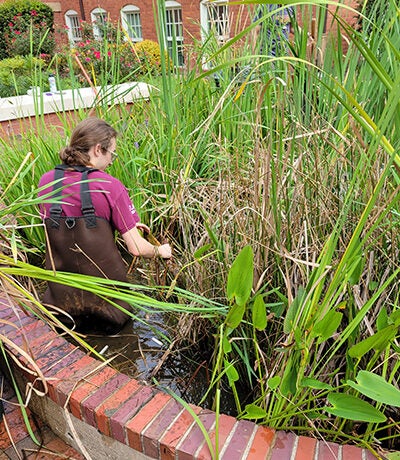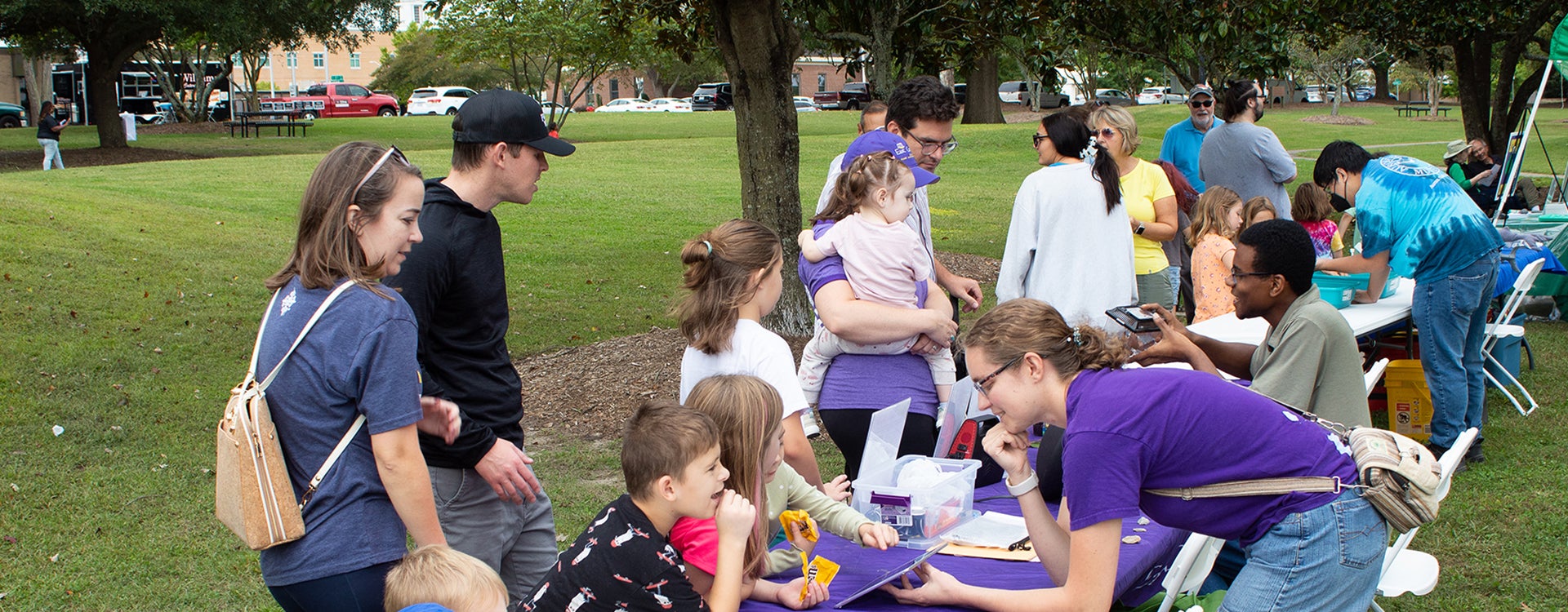Science Festival
Zasha Griffin, an East Carolina University Brinkley-Lane Scholar from the Honors College, happily helped get other students involved in the third annual Tar River Community Science Festival (TRCSF) . He hired 58 volunteers, whose total time will be equal to 260 hours.
The festival, which is free and open to the public, will run from 11 a.m. to 4 p.m. Saturday, Nov. 9., Greenville Town Common. It is a celebration of the Tar River, the community and their relationships. The event will include activities that allow people of all ages to experience science and promote shared learning about the challenges facing the diverse communities of eastern North Carolina.
2023 Tar River National Science Festival
The event is hosted by ECU’s Water Resources Center (WRC), which is part of the Thomas Harriot College of Arts and Sciences; North Carolina Association for Environmental Justice; North River Association of Pitt County; and the Pitt County Coalition Against Racism.
Griffin, who is majoring in engineering and environmental engineering management, first heard about the festival when she applied to ECU. Later, he joined the event and met WRC staff Grace Gavigan and Dr. Steven Moysey, director of the center and professor in the Department of Geological Sciences.

Zasha Griffin volunteered her time to get other ECU students involved in this year’s event. (Photo by Rhett Butler)
“I’m a very involved person,” Griffin said. It’s very important to me, especially if I can give that opportunity to others.”
“Zasha did a great job of recruiting student volunteers for the festival this year,” said Gavigan, who is the program coordinator for the Community Center’s Coastal and Community Research Training Program.
WRC partners with many organizations for the annual event, including affiliates from the cities of Greenville, Princeville and Nags Head, as well as individuals from AmeriCorps, NC Civil and other community organizations.
More than 400 people attended the festival in its first year in 2022, and Gavigan said he hopes to surpass that number this year.
The festival will include about 30 craft tables. Other attractions include food trucks, boat rides, fishing lessons and three tents. One tent will feature members of the Bending Tree Creative Collective, a UNCGreensboro performing arts group, who will chat about environmental justice issues. The tent will include youth talks and discussions and other community engagements. The second tent will feature displays of trash collected in the Tar River, and the third tent will feature a community art project that the public can participate in.
“I feel like this is really community service,” Gavigan said.
He hopes that the guests who come to the festival will have the same feelings as the community that he has. They will hear other people’s stories and learn how to keep the Tar River and other water bodies clean while having fun.
Gavigan, who has worked with the WRC for a year, says the ability to interact with the community is what drew him to the job. He said he likes different types of institute and research. He also said he is passionate about the environmental justice of the situation, something he has seen since he began his law school career in human rights cases.
He said: “It is a very satisfying job. “Everyone is very committed and active.”
Griffin, a first-year student and research assistant at Dr. Randall Etheridge, an assistant professor in the Center for Renewable Energy and Environmental Engineering, is also well suited when it comes to water quality issues. He worked briefly with an engineering firm in the area of land planning, where he learned how stormwater and water quality are heavily involved in the permitting process. He was taught about guidelines, restrictions and factors related to water quality and water resources, even taking into account aspects such as humidity when designing a building. He said it was a unique opportunity to expand his knowledge of water quality.
“My research is on water quality and waterfowl deterrence chemistry around Matamuskeet Lake,” Griffin said. “This was another opportunity to improve my understanding of water resources and how small changes like prescribed flooding play a big role in water quality.”
Griffin hopes the community will get a lot of money from the festival. He said it is a good opportunity for people, including young children, to learn about their environment and the Tar River.
He says: “I wish I had learned more about science when I was younger.” “The Water Resources Center provides opportunities to contribute to the environment and community. Having these opportunities helps people find new interests and connect with the world.”
To find out more about the WRC or the science fair, visit the WRC website.

Griffin is helping clear the fish pond, located outside ECU’s Old Cafeteria Complex, of many aquatic plants so the fish can easily access the surface water. (Contributed Photo)

Water Resources Center staff hope attendance at this year’s Tar River Community Science Festival will surpass the 400 visitors that attended the first year. (Contributed Photo)
Other Stories
#Science #Festival
